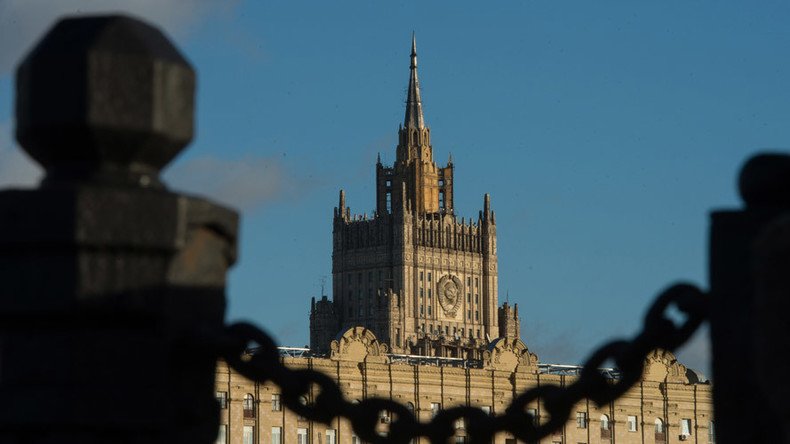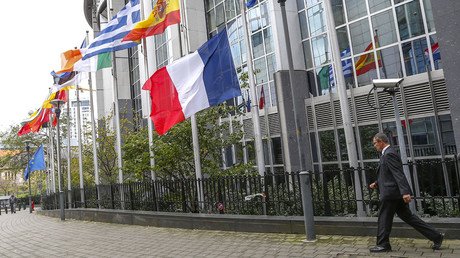’Nothing new’: Moscow slams EU’s 5 principles of relations with Russia

Russia is ready to fully restore cooperation with the EU, but only on mutually acceptable terms, the Russia’s foreign ministry said in a comment on the principles of relations with Moscow recently voiced by the block’s foreign affairs chief, Federica Mogherini.
“Nothing new was actually said. We’ve heard before in one form or another all of the so-called five ‘guiding principles’, mentioned by F. Mogherini. In fact, the EU simply documented the current state of affairs,” the foreign ministry said in its comment.
Mogherini said on Monday that the there was "unanimity among the 28" EU foreign ministers on the five broad principles of relations with Russia.
The principles included a full implementation of the Minsk ceasefire agreement in eastern Ukraine as a condition for any shift in the block’s policy toward Russia; increasing ties with eastern European and Central Asian countries; the strengthening of EU resilience in the energy and other sectors; “selective engagement” with Russia on foreign policy issues vital to the EU; boosting people-to-people contacts and supporting Russia’s civil society.
Moscow blasted the EU for its persistence in linking progress in relations with Russia to the full implementation of the Minsk agreements, saying that “the absurdity of this commitment is becoming more and more apparent.”
“Brussels is, in fact, making the fate of Russia-EU relations hostage of the Ukrainian authorities,” the ministry said.
It’s not Moscow, but western-backed Kiev authorities, who are doing everything to avoid fulfilling their part of the peace accords, it said.
The block’s plans for closer ties with former Soviet bloc states and USSR republics was also criticized.
“Brussels seems to be planning to force the Central Asian countries to make the bogus choice – either the EU or Russia” as it happened with Ukraine, Moscow stressed.
Main results of today’s Foreign Affairs Council: https://t.co/VqbLKAcjC6. #Iran#Russia#Libya#MiddleEast#MEPPpic.twitter.com/dsvfJhE28O
— EU Council Press (@EUCouncilPress) March 14, 2016
The ministry said that “Russia remains the key energy supplier to the EU and, in fact, the main guarantor of its energy security.”
“The energy security of an energy consuming states depends entirely on their ability to build reliable and stable relationships with their suppliers,” it added.
READ MORE: 'Evil Russia' works for any issue: Moscow rejects Hammond’s claim it wants UK to quit EU
Moscow stressed that “selective engagement” is unlikely to work for the European Union in relation with Russia.
“It’s well known that Russia repeatedly expressed readiness for full-scale restoration of relations with the EU. But we are used to choosing the menu ourselves. Currently because of the stance of the European Union this menu is lean. If it’s to be full is a subject of mutually acceptable agreements, rather than unilateral approaches,” it said.
As for support for civil society, the foreign ministry pointed out that “of course, we won’t allow any interference into Russia’s internal affairs.”
6 month extension: EU prolongs sanctions against Russia https://t.co/FLrMH18Snrpic.twitter.com/vayZJTM3LC
— RT (@RT_com) March 10, 2016
And instead of “spouting rhetoric” about intensifying contacts between people in Russia and the EU, it advised Brussels to finally “sign the already modernized agreement on visa facilitation and to bring to a logical completion the visa-free dialogue” with Moscow.
The relations between EU and Moscow deteriorated due to the Ukrainian crisis, with the EU imposing several waves of sanctions on Russia, which it blamed for masterminding the conflict.
Moscow has repeatedly denied the claims coming from Brussels and imposed its own restrictive measures in return, which included the ban on food imports.













